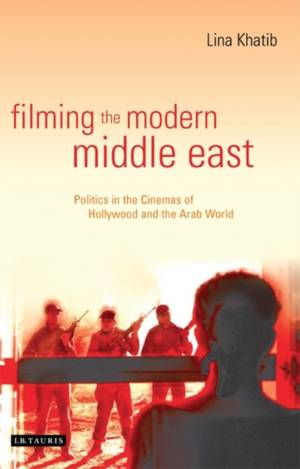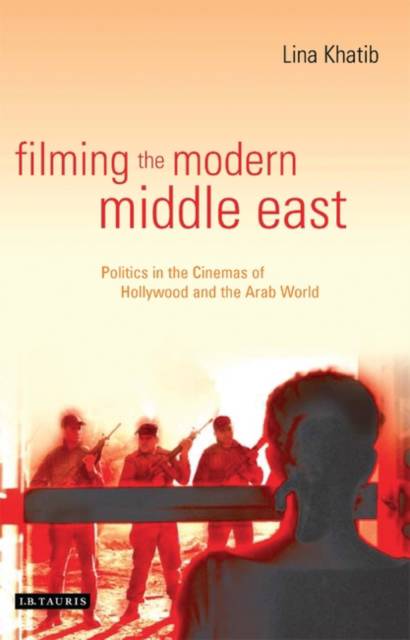
- Retrait gratuit dans votre magasin Club
- 7.000.000 titres dans notre catalogue
- Payer en toute sécurité
- Toujours un magasin près de chez vous
- Retrait gratuit dans votre magasin Club
- 7.000.0000 titres dans notre catalogue
- Payer en toute sécurité
- Toujours un magasin près de chez vous
322,45 €
+ 644 points
Format
Description
Today the world's media have a pressing need to understand and interpret the modern Middle East. In this timely book, Lina Khatib examines how contemporary American cinema and the cinemas of the Arab world contribute to this global preoccupation in their representations of Middle Eastern politics. This examination of Hollywood as the dominant Western interpreter of the Arab World also views the Arab world in terms of how it perceives itself and others through its films. It covers films made in the USA, Egypt, Tunisia, Algeria, Morocco, Lebanon, Syria and Palestine over the final two decades of the last century and into the present, showing how these cinemas represent major political issues in the Middle East, from the Arab-Israeli conflict, through the Gulf War, to Islamic fundamentalism. It also uncovers the challenges presented by Arab cinemas to Hollywood's ways of representing Middle East politics. The book goes beyond an analysis of difference, to address similarities in how political themes are selected as well as in the cinematic language that gives them life.
For example, it looks at cinema as a tool of nationalism in the USA and the Arab world and at how the representations of political issues by Hollywood and Arab cinemas are informed by the political and historical contexts in which they occur. This book is inspired by Edward Said's writing on Orientalism, but it goes further, to show not only how the 'Orient' is constructed by the 'Occident', but also how the 'Orient' itself is consumed by power struggles both internal and external. "Filming The Modern Middle East" therefore establishes an important link between discourses of the West and those of the East.
For example, it looks at cinema as a tool of nationalism in the USA and the Arab world and at how the representations of political issues by Hollywood and Arab cinemas are informed by the political and historical contexts in which they occur. This book is inspired by Edward Said's writing on Orientalism, but it goes further, to show not only how the 'Orient' is constructed by the 'Occident', but also how the 'Orient' itself is consumed by power struggles both internal and external. "Filming The Modern Middle East" therefore establishes an important link between discourses of the West and those of the East.
Spécifications
Parties prenantes
- Auteur(s) :
- Editeur:
Contenu
- Nombre de pages :
- 256
- Langue:
- Anglais
- Collection :
Caractéristiques
- EAN:
- 9781845111922
- Date de parution :
- 29-09-06
- Format:
- Livre relié
- Format numérique:
- Genaaid
- Dimensions :
- 162 mm x 242 mm
- Poids :
- 517 g

Les avis
Nous publions uniquement les avis qui respectent les conditions requises. Consultez nos conditions pour les avis.






